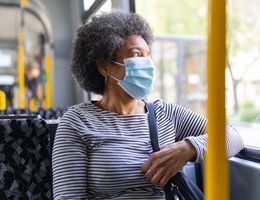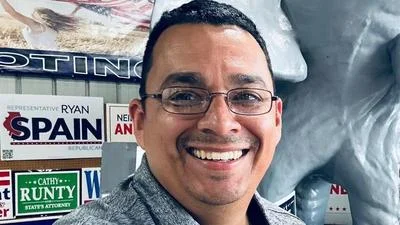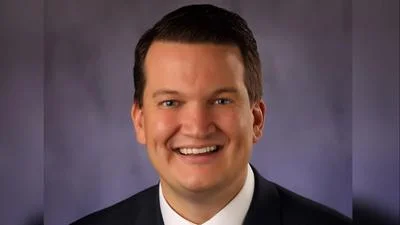C.G.H. Medical Center issued the following announcement on Feb. 5.
As of Feb. 2, people using public transportation in the U.S. must wear face masks, according to the Centers for Disease Control and Prevention (CDC). Face masks are also required in transportation hubs, such as airports and train stations.
Here are some questions and answers about the new requirements.
Q. Why are masks important on public transportation?
A. Travel plays an important role in the spread of the coronavirus. When you travel, you're often forced into close contact with other people. It may be difficult to distance yourself from others. And you're exposed to frequently touched surfaces.
Face masks help stop the spread of the virus by keeping the droplets you exhale away from others. They also may help lower your risk of breathing in the virus.
Q. What kinds of vehicles are covered by this new requirement?
A. Face masks must be worn when traveling in:
- Airplanes.
- Ships.
- Ferries.
- Trains.
- Subways.
- Buses.
- Taxis.
- Ride-sharing vehicles.
Q. What kinds of masks are OK?
A. Masks should completely cover the nose and mouth. They should attach to your head with ties, ear loops or elastic bands that go behind your head. And they should fit snugly against your cheeks. Masks shouldn't have slits, exhalation valves or holes, but they can have a clear plastic panel to help with communication.
Cloth face masks, medical masks and N95 respirators are all OK. Gaiters can be worn if they are two-layered.
Masks that don't abide by the above rules aren't acceptable. Neither are:
- Scarves.
- Ski masks.
- Balaclavas.
- Bandannas.
- Turtleneck collars pulled up over the nose and mouth.
- Knitted masks or masks made from other types of loosely woven fabrics.
A. Yes. For example, children under 2 years old don't need to wear masks. The same goes for someone who can't safely wear a mask due to a disability. And you aren't expected to wear a mask while eating or drinking.
Q. What happens if I don't mask up?
A. Operators are not allowed to let you board if you aren't wearing a mask properly. And you may be asked to leave if you don't comply.
Q. Is it OK to travel as much as I want if I mask up?
A. No. CDC still recommends that people avoid nonessential travel as much as possible.
Before you head out, learn the do's and don'ts of wearing cloth face masks the right way.
Original source can be found here.

Source: C.G.H. Medical Center





 Alerts Sign-up
Alerts Sign-up